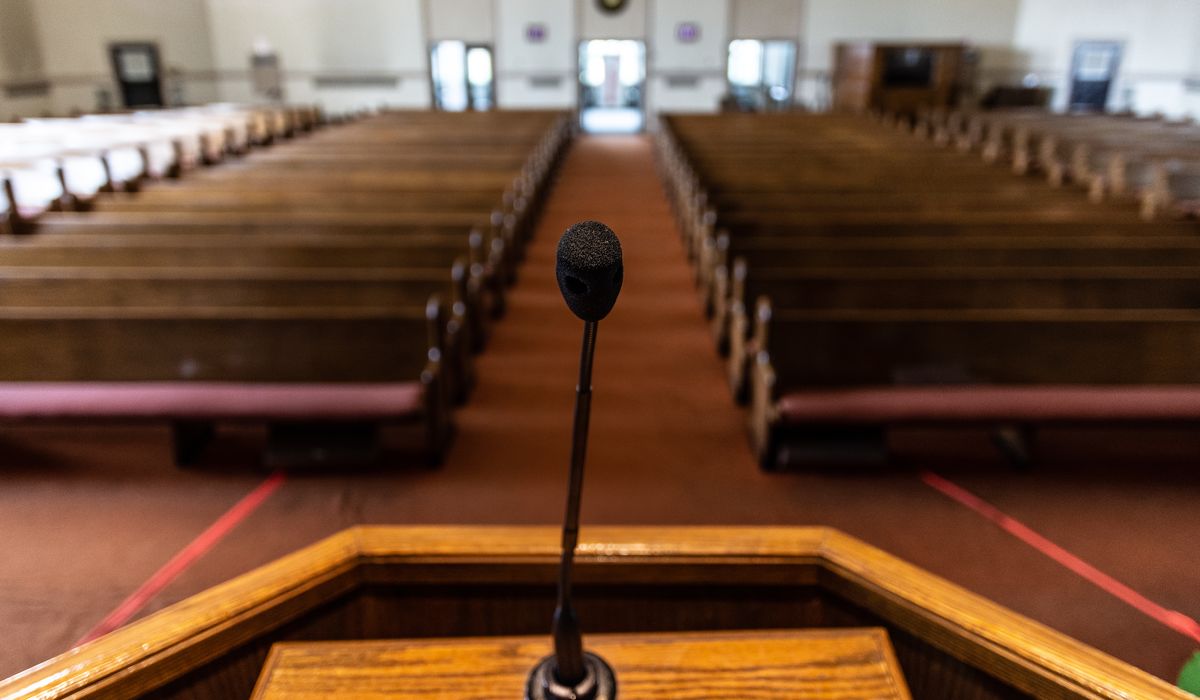


New Biden administration rules for faith-based nonprofits would obliterate conscience protections for religious charities that receive federal funds, critics of the measure say and burden those organizations’ religious free exercise.
Under the proposal, religious charities must provide recipients with written notice of nondiscrimination policies, including a right to refuse “to attend or participate in a religious practice” as part of the charity’s services. Clients who object to a particular faith group’s program must be provided referrals to alternative services, the proposal says.
The right to hire employees who affirm the charities’ beliefs would also be limited, critics say. The proposed rule says the agencies hold that “the Title VII religious exemption does not permit such organizations to discriminate against workers on the basis of another protected classification, even when an employer takes such action for sincere reasons related to its religious tenets.”
A 2016 study by social science researchers Brian J. and Melissa E. Grim said 344,984 congregations of various faiths use government grants, contracts and fees to provide social services in their communities, signifying the religious groups’ importance in aiding those in need.
Announcing the change, a Department of Health and Human Services news release said the moves are a “restoration” of “religious liberty protections” for clients of faith-based charities and carry forward a 2021 executive order signed by President Biden.
The administration also claims the new regulations would remedy problems caused by a 2020 Trump administration rulemaking in the same sphere, although one critic said that assertion was unsupported in the proposal.
In all, nine federal agencies would be governed by the rules when adopted. Along with HHS, the departments of Agriculture, Education, Homeland Security, Housing and Urban Development, Justice, Labor, Veterans Affairs, and the Agency for International Development are covered by the proposal.
A 60-day public comment period for the new rules ended March 13. The agencies involved will review submissions, develop final rules and move toward their implementation, although this could be met with court challenges.
“There is no need for this proposed rulemaking,” said Rachel N. Morrison, who directs the HHS Accountability Project for the Ethics & Public Policy Center, a Washington think tank. “The rationale they give is … very gratuitous.”
Despite the assertion that the new rules would expand access to federally funded programs and services, she said, the agencies “cite no community or population that is not receiving services or programs or how this proposal would increase that in any way.”
The new rules, Ms. Morrison said, are “a solution in search of a problem. And it goes to the Biden administration’s efforts to say they care about the First Amendment and religious liberty, but at the same time, they are going out of their way to gratuitously roll back protections for people of faith and religious organizations and minimize their participation in protection under the law.”
One statute is Title VII of the Civil Rights Act of 1964 and the exemptions it grants to religious organizations.
The proposed rulemaking says, “the Title VII religious exemption does not permit such organizations to discriminate against workers on the basis of another protected classification, even when an employer takes such action for sincere reasons related to its religious tenets.”
Critics of the new rules say those religious employment protections would be gutted if the proposal is adopted.
“The proposed amendments would delete existing regulatory text that acknowledges the [Title VII] exemption provides a defense to claims other than religious-discrimination claims,” a public comment filed by First Liberty Institute, a public interest law firm, said.
The First Liberty statement added, “The agencies’ cramped view of the religious employer exemption is wrong.”
The statement also said, “The agencies’ changed view about the scope of the religious employer exemption contradicts the text of Title VII, flouts the great weight of federal-court precedent interpreting the exemption and in many applications risks violating [the 1993 Religious Freedom Restoration Act].”
Ms. Morrison of the EPPC think tank said she would be “surprised” if a final version is adopted “before the end of the year.”
• Mark A. Kellner can be reached at mkellner@washingtontimes.com.
